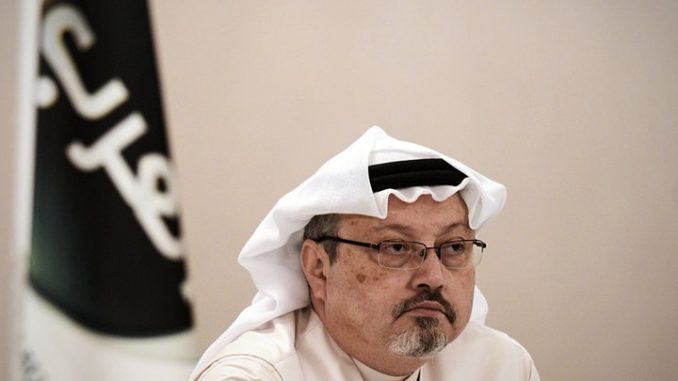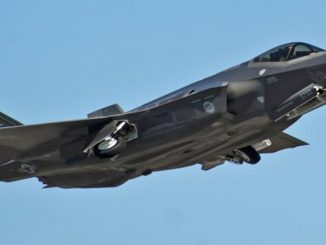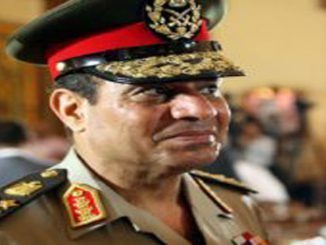
Washington Post columnist was last seen entering his country’s consulate in Istanbul, his fiancee says
Jamal Khashoggi, a prominent Saudi journalist and Washington Post columnist, has disappeared after visiting his country’s consulate in Istanbul on Tuesday, according to his fiancee.
“He entered at 1pm [11am BST] and hasn’t surfaced since then. I have no media statements to make at this point, but I have contacted Turkish authorities for help,” Khashoggi’s fiancee, who did not want to be identified by name, said.
According to the fiancee, Khashoggi visited the Saudi consulate in Istanbul last week, but was asked to return on Tuesday to complete an application related to family matters, according to Arabi21 news website.
The fiancee, who is a Turkish citizen, said he entered the consulate’s Saudi nationals section, while she waited for him at the foreigners’ hall for several hours until the consulate closed. The consulate’s hours of operation are 9am to 3pm.
Turkish and Saudi authorities, including the Istanbul consulate and the Saudi Embassy in Washington, did not immediately respond to requests for comment, according to a Reuters report.
Khashoggi, 59, is a former editor-in-chief of Saudi newspapers al-Arab and Watan. He previously served as the media advisor to Prince Turki al-Faisal during his tenure as ambassador in London and Washington.
The seasoned journalist studied at Indiana State University and has been based in Washington DC since he fled Saudi Arabia in 2017 over fears of the new government’s crackdown on critical voices.
Khashoggi is considered a Saudi nationalist, and before leaving Saudi Arabia in September 2017, he was seen as close to the royal court.
However, friction between him and the kingdom’s rulers began to emerge after comments at the Washington Institute for Near Eastern Policy, warning that Saudi Arabia should be “rightfully nervous about a Trump presidency”.
Authorities informed him that he was banned from writing and tweeting soon after. Worried by the actions, Khashoggi decided to leave the country.
Since then, he has primarily been living in the US capital, writing for the Washington Post. His columns include criticising Saudi Arabia’s policies towards Qatar and Canada, the war in Yemen, and a crackdown on the media and activists.
“I have left my home, my family and my job, and I am raising my voice,” he wrote in September 2017. “To do otherwise would betray those who languish in prison. I can speak when so many cannot.”
Eli Lopez, senior editor of Global Opinions at the Washington Post, said the newspaper is “very concerned” about where Khashoggi may be after failing to reach him on Tuesday.
“We are monitoring the situation closely, trying to gather more information,” Lopez told MEE in an email.
“It would be unfair and outrageous if he has been detained for his work as a journalist and commentator. Jamal is a great writer and insightful political observer, deeply committed to the open exchange of ideas; we are honoured to have his point of view be part of our Global Opinions. We hope that he is safe and that we can hear from him soon.”
The US State Department said it was aware of the reports on Khashoggi’s apparent disappearance.
“We have seen these reports and are seeking more information at this time,” a US official told MEE via email.
According to a friend of Khashoggi, the journalist’s Saudi wife divorced him following his fallout with the Saudi authorities.
He was visiting the Istanbul consulate to obtain proof of his divorce required by Turkish authorities to marry his fiancee.
A campaign to raise awareness of Khashoggi’s disappearance quickly emerged online, with social media users tweeting the hashtag “JamalKhashoggikidnapped” in Arabic.
? We call our followers and everyone to participate in our supporting campaign for the kidnapped Saudi author Jamal Khashoggi and tweet using the hashtag #اختطاف_جمال_خاشقجي to press on the authorities to uncover where he is !! pic.twitter.com/iqEcZwH3Uj
— Prisoners of Conscie (@m3takl_en) October 2, 2018
Al Jazeera Arabic has reported that Turkish police have opened an investigation into the matter.
Powerful Crown Prince Mohammed bin Salman led a purge against businessmen and fellow royals last year, detaining dozens of powerful figures for alleged corruption until they agreed to financial settlements.
Last year, Saudi authorities also reportedly held Lebanese Prime Minister Saad Hariri and put him under house arrest. Both Hariri and Riyadh denied the reports, but European officials, including French President Emmanuel Macron, have confirmed that the prime minister was detained by the Saudis.
While bin Salman has led a modernisation campaign to counter the kingdom’s image as an ultraconservative society with a repressive government, rights groups say the crackdown against human rights activists has escalated.
“When I speak of the fear, intimidation, arrests and public shaming of intellectuals and religious leaders who dare to speak their minds, and then I tell you that I’m from Saudi Arabia, are you surprised?” Khashoggi wrote in his first piece for Washington Post.
“With every supposed reform comes a wave of fresh arrests, prison sentences and increasingly repressive behavior. At each turning point, though, Jamal has offered readers of The Post insightful commentary and sharp criticism about the seemingly impenetrable country,” Washington Post Global Opinions editor Jason Rezaian wrote on Oct. 2.
“The Saudi government appears determined to leave its citizens without any space to show even rhetorical support for activists jailed in this unforgiving crackdown on dissent,” Sarah Leah Whitson, Middle East director at Human Rights Watch, said in a statement earlier this year.
Khashoggi still in Saudi consulate in Istanbul: senior Turkish officials



